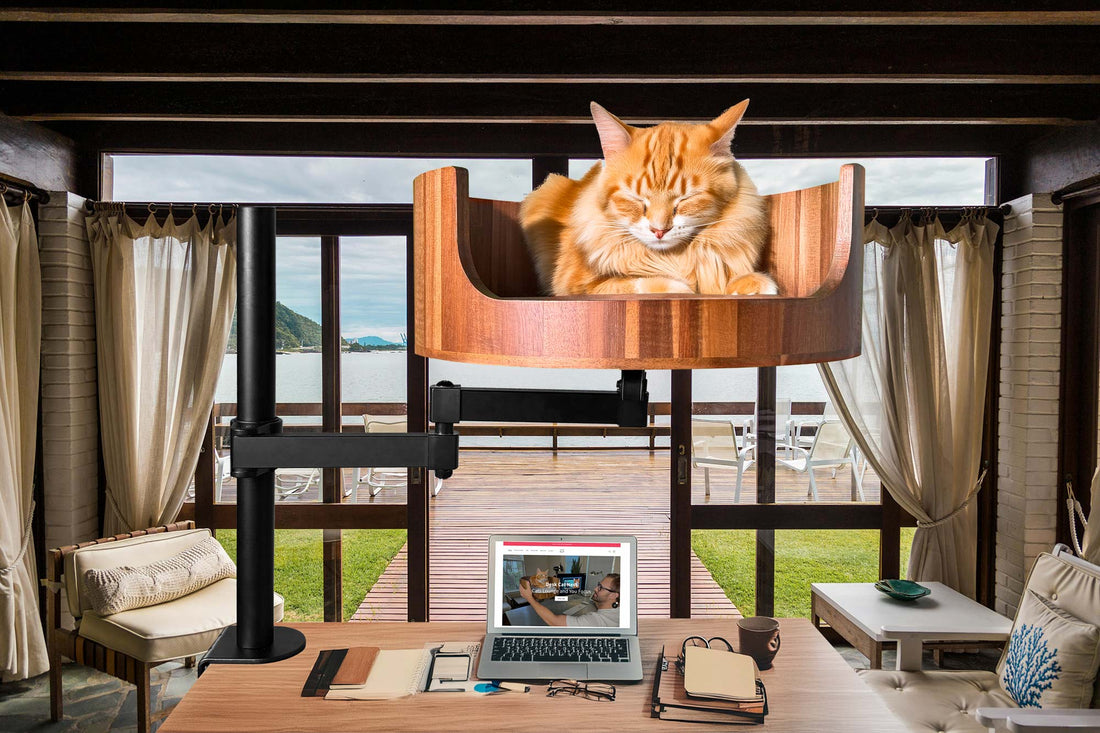
Why Kittens Meow So Much: Understanding Their Behavior
Share
Do you ever wonder why kittens meow so much? From incessant meowing in the wee hours of the morning to constant chirping during playtime, understanding the behavior of these adorable furballs can provide insight into their needs and emotions. In this article, we delve into the reasons behind why kittens meow so much, helping you decipher their unique language and develop a deeper bond with your feline friend.
From seeking attention to expressing discomfort, kittens use meowing as a form of communication to convey various messages. By delving into the different contexts in which kittens meow, we can uncover the underlying reasons behind their vocalizations. Whether it's hunger, loneliness, or simply wanting to play, deciphering your kitten's meows can enhance your ability to meet their needs and foster a harmonious relationship. Join us as we explore the intricate world of kitten behavior and uncover the secrets behind their adorable meows.
1. Kittens meow to communicate with humans, often seeking attention, food, or comfort.
2. Understanding a kitten's body language alongside their meows can help decipher their needs and emotions.
3. Meowing excessively may indicate underlying health issues or stress, requiring a visit to the veterinarian.
4. Training kittens using positive reinforcement techniques can help reduce excessive meowing behavior.
5. Creating a stimulating environment with toys, scratching posts, and interactive play can keep kittens mentally and physically engaged, reducing meowing out of boredom.
Causes of Excessive Meowing in Kittens
Kittens meow for various reasons, and understanding these causes can help you decipher their behavior. Some common reasons for excessive meowing in kittens include hunger, seeking attention, stress or anxiety, medical issues, or even boredom. For example, a kitten may meow excessively if it is hungry and trying to communicate its need for food. On the other hand, a kitten may meow incessantly if it is feeling anxious in a new environment or if it is experiencing separation anxiety from its owner.
Training Techniques to Reduce Excessive Meowing
There are several training techniques that can help reduce excessive meowing in kittens. Positive reinforcement is a common method used to encourage desired behaviors in kittens. By rewarding your kitten with treats or toys when it remains quiet, you can reinforce the behavior of not meowing excessively. Another effective training technique is to provide your kitten with ample mental and physical stimulation to prevent boredom, which can lead to excessive meowing. Interactive toys, climbing structures, and regular play sessions can help keep your kitten engaged and less likely to meow excessively.
Consulting a Veterinarian for Behavioral Concerns
If your kitten's meowing persists despite training efforts and environmental enrichment, it may be beneficial to consult a veterinarian. Excessive meowing can sometimes be a sign of an underlying medical issue, such as a urinary tract infection or gastrointestinal problems. A veterinarian can perform a thorough examination of your kitten to rule out any medical issues and provide guidance on managing behavioral concerns. Additionally, a veterinarian may recommend behavioral modification techniques or medications to help address excessive meowing in kittens.
Case Studies on Resolving Excessive Meowing in Kittens
To further illustrate the effectiveness of training techniques and veterinary consultation in addressing excessive meowing in kittens, several case studies can be examined. One case study may involve a kitten with separation anxiety, which was successfully managed through positive reinforcement training and the use of behavioral modification techniques recommended by a veterinarian. Another case study may focus on a kitten with a medical issue, such as a thyroid disorder, that was causing excessive meowing and how the condition was diagnosed and treated by a veterinarian. By studying these real-life examples, pet owners can gain valuable insights into managing and resolving excessive meowing in kittens.
Frequently Asked Questions
Why do kittens meow so much?
Kittens meow for various reasons, including hunger, thirst, loneliness, or to seek attention from their owners. Meowing is a way for kittens to communicate their needs and feelings.
Will Desk Cat Nest help reduce my kitten's excessive meowing?
While Desk Cat Nest provides a cozy and comfortable space for your kitten to rest and play, it may not directly address the underlying reasons for your kitten's excessive meowing. It is important to identify and address the root cause of your kitten's behavior.
Can Desk Cat Nest be used as a solution for behavioral issues related to meowing?
Desk Cat Nest can be a great addition to your kitten's environment and may help reduce stress and anxiety, which can sometimes lead to excessive meowing. However, it is advisable to consult with a veterinarian or animal behaviorist to address any behavioral issues your kitten may be experiencing.
How should I introduce Desk Cat Nest to my kitten to help with excessive meowing?
It is recommended to place Desk Cat Nest in an area where your kitten spends a lot of time and gradually introduce it to your kitten by adding some toys or treats inside. This will help create a positive association with Desk Cat Nest and may help reduce excessive meowing over time.
In conclusion, providing a comfortable and cozy space for your kitten to rest and feel secure is essential in reducing excessive meowing. The Desk Cat Bed offers a perfect solution by creating a safe and inviting environment for your furry friend to relax and unwind. With its soft and plush design, the Desk Cat Bed not only provides a comfortable spot for your kitten to rest but also encourages a sense of security and comfort. Investing in a Desk Cat Bed is a valuable choice that will not only benefit your kitten's well-being but also help minimize excessive meowing in the long run.


















































